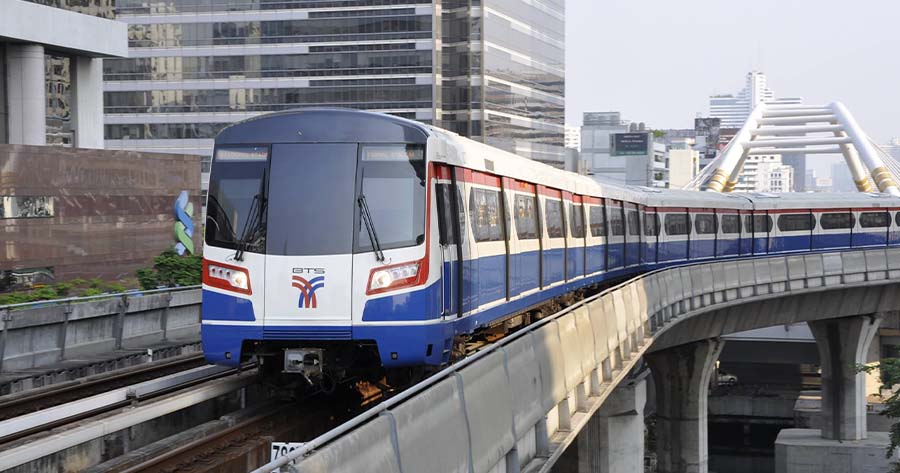Thailand had seen over 135,000 people applying on the first day for the 20-baht flat fare scheme for the rapid rail system through the “Tang Rat” application on August 25, 2025. Still, the flat fare policy may not become effective on October 1 as announced earlier due to the ongoing discussion with the private sector and an uncompleted settlement of some regulations.
Ms. Manaporn Charoensri, Deputy Minister of Transport, stated that there are three regulations that need to be settled first as they are essential mechanisms to operate this fare policy. First is the review of the Common Ticketing System Management Bill to form a supporting fund. Second is the review of the Department of Rail Transport Bill to manage the rail transport system effectively and align with the development of the rapid rail system. And finally, there are the amendments of the Mass Rapid Transit Authority of Thailand (MRTA) Act B.E. 2543 (2000) to settle the compensation for the fare difference to the private sector.
The amendments will allow MRTA’s accumulated earnings to fund the 20-baht flat fare policy since the MRTA Act did not have details about utilizing accumulated earnings to support such policy. Therefore, the use of it before the amendment may be considered a violation of regulation, law, and fiscal discipline. So far, MRTA has accumulated earnings of about THB 7 – 8 billion.
Currently, the Department of Rail Transport Bill has been approved by the House of Representatives, and now being sent to the Senate. As for the Common Ticketing System Management Bill, the lower house has already reviewed 35 sections out of its 56 sections. There will be a meeting on 3 September to continue reviewing this bill and examine the amendments of the MRTA Act before sending it to the upper house. This process should take about one month before the act will be introduced to His Majesty King Maha Vajiralongkorn and imposed as a law.
As for the negotiation with the private sector, Mr. Krichanont Iyapunya, an assistant to the Minister of Transport, stated that the purpose of it is to settle compensation for the revenue that will be lost once the 20-baht flat fare is taking effect. Additionally, there will also be a negotiation regarding the fact that the private concessionaires must share their excess revenues with the government to support the common ticket system. Afterall, this 20-baht flat fare is likely to increase the passenger volume by 20%.
Another matter that needs to be addressed is complications that occur when applying for the 20-baht flat fare. According to the Thai Rath news agency, the application requires people to go through complex steps and periods of time, causing them to lose their motivation. First, they must have a “Tang Rat” application, which requires identity confirmation at a specific service before they can login regularly.
Second, they must have a Rabbit card and/or EMV Contactless that fulfill certain requirements. For example, those who hold Rabbit cards must also have “My Rabbit” application, which most people do not have, according to Thai PBS news agency. As for the EMV contactless, the applicant can use any credit card, but the debit card must come from certain banks while the prepaid card must be an MRT EMV Card or Mangmoom EMV. Furthermore, if the applicant plans to use the services of BTS and MRT, they must use both cards to apply for the fare.
Since the flat fare policy is unlikely to become effective on October 1, the SRT Red Lines and Purple Line, that currently use this policy, must reverse their fare prices to normal as the government plans to have every railway line using this policy at the same time.




